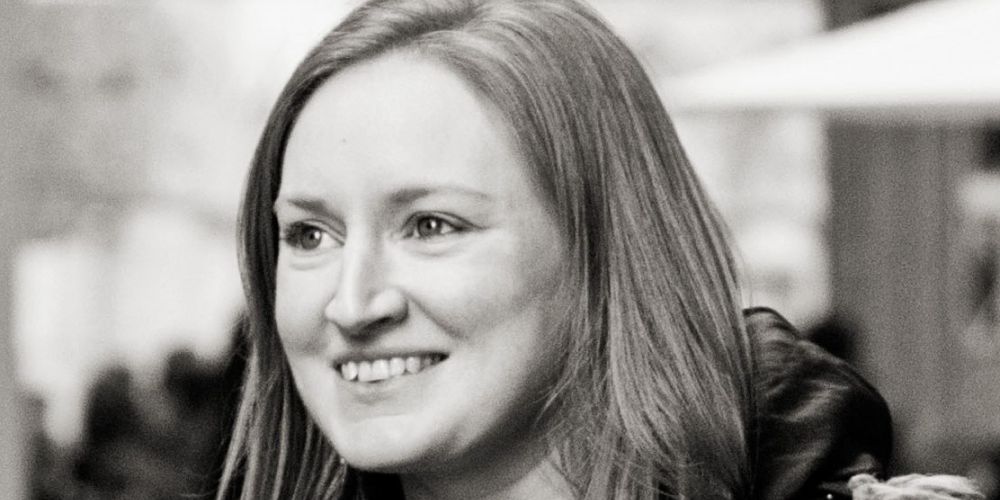
Principal Climate Change Scientist at UK Health Security Agency (UKHSA) Helen Macintyre (PhD Atmospheric Science 2011) explains why the health impacts of climate change should be on everyone’s agenda.
What is the most pressing health impact of climate change in the UK?
“The evidence tells us temperature records are being regularly broken, floods are reaching homes they haven’t reached before, and the climate is becoming more suited to certain types of mosquito,” says Helen. “Those three are happening now.”
After a decade of work at the UKHSA, formerly Public Health England, it is only recently that Helen feels the health implications of climate change are starting to gain recognition in the wider population.
“For many people, addressing climate change has often been viewed as saving the environment, and less so about people. But in reality, the climate crisis is also a health crisis; our changing climate will impact upon people's health and wellbeing.”
The shift in focus towards health was demonstrated by the introduction of a dedicated health day at the 28th annual Conference of the Parties (COP28) – which will be repeated at COP29. “It was great to see a health declaration signed at COP, underlining the importance of this. People are realising it’s going to impact everyone.”
Increased temperatures are going to be particularly dangerous for older people – and the number of people over 85 in the UK is projected to more than treble in the next 40 years.
Helen works at the UKHSA’s Centre for Climate and Health Security (CCHS) – a Centre headed by Professor Lea Berrang Ford from the University’s Priestley International Centre for Climate Futures. She uses computational modelling, analytical research, and evidence synthesis to provide the best scientific advice to local authorities, ministers and other stakeholders on the health impacts of climate change.
She draws on her time as an atmospheric scientist at Leeds – where she used modelling to investigate the lifetime of gases, including greenhouse gases – to carry out her work.
“Leeds taught me a lot about atmospheric science,” Helen says. “It was great. I was there at the time the Intergovernmental Panel on Climate Change (IPCC) and Al Gore won the Nobel Peace Prize for their work on climate change, and Leeds academic Piers Forster was one of the lead authors on that. It was wonderful to be rubbing shoulders with people like him in the corridors.”
After time as a researcher at Massachusetts Institute of Technology (MIT), Helen became more interested in the applied aspects of climate change, and brought her experience to the UKHSA.
Some of the most pressing evidence presented to Helen and her team comes first hand from local authorities who have witnessed that “climate change is happening now”. Secondary impacts add to pressures – people who experience flooding are at higher risk of depression, anxiety and post-traumatic stress disorder, for example.
“We also have medical entomologists gathering data in the field,” Helen explains, as she highlights the scale of the work. They set traps to detect mosquitoes and the potential for vector-borne diseases such as dengue and Chikungunya viruses which are moving further north each year, and may become prevalent in the south-east and other parts of the UK in the future.
“The impacts upon health will not be distributed evenly either. Increased temperatures are going to be particularly dangerous for older people – and the number of people over 85 in the UK is projected to more than treble in the next 40 years.”
There are other areas of Helen’s work for which the evidence is less certain – and may later become an issue, or even have positive outcomes. “Things like drought, wildfires, and aeroallergens in the UK show less conclusive patterns. If warmer weather leads to people spending more time outside, that may impact the number of skin cancer cases.
“On the other hand, exposure to sunlight has positive effects on mental health, and the increased vitamin D might be good for health. It’s important to continue to build the evidence so we can better understand these outcomes.”
The impact of intervention
Helen and her team at the CCHS also consider the response to the climate crisis, and implications for health, which are not always straightforward.
Active travel, for example, can both reduce emissions and boost health outcomes. Better insulated homes, on the other hand, lead to reduced ventilation, which could increase risks from indoor sources of air pollution – such as particles from cooking.
One of Helen’s proudest pieces of research on interventions reconnected her with Leeds. She used a model developed at the University to map the impact of white roofs on buildings, which reflect sunlight and keep the air cooler. The modelled reduction in deaths during a heat wave event was picked up in IPCC reports.
But despite capacity for innovation, it may be that the more natural options are most viable: “Nature-based solutions show a lot of promise,” Helen says. Such schemes might include greening of urban landscapes and infrastructure, river or wetland restoration, and improvement of rural landscapes. “People are starting to recognise the importance of green spaces for people’s mental and physical health, for biodiversity and for flood management.”
Ultimately, Helen’s recommendations on the risks and the most effective solutions are just the first piece in the puzzle. “Our role is to provide the evidence in a way that is useful to our partners so they are able to prepare and respond.”
Further information
The UK Health Security Agency (UKHSA) prevents, prepares for and responds to infectious diseases, and environmental hazards, to keep all our communities safe, save lives and protect livelihoods. UKHSA is an executive agency of the UK Government, sponsored by the Department of Health and Social Care. Discover more about UKHSA on the UKHSA website.
For more information, email Ed Newbould, Digital Communications Officer at the University of Leeds, at e.w.newbould@leeds.ac.uk.